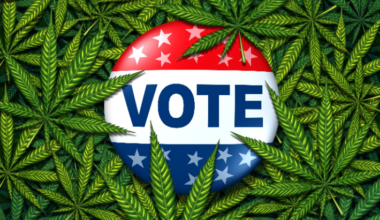Representatives Ed Perlmutter (D-CO), Steve Stivers (R-OH), Nydia Velazquez (D-NY), and Warren Davidson (R-OH), along with over 100 additional co-sponsors, have reintroduced The Secure and Fair Enforcement (SAFE) Banking Act in the US House of Representatives.
Federal law currently defines all marijuana-related endeavors as criminal enterprises, including those commercial activities that are licensed and legally regulated under state laws. Therefore, almost no state-licensed cannabis businesses can legally obtain a bank account, process credit cards, or take standard business deductions on their federal taxes.
In this environment, the rapidly growing multi-billion dollar cannabis industry must operate largely on a cash-only basis, which makes businesses more susceptible to theft and more difficult to audit. This ongoing federal prohibition also places the safety and welfare of these businesses’ customers at risk, as they must carry significant amounts of cash on their persons in order to make legal purchases at retail facilities.
For these reasons, NORML has long advocated that federal lawmakers vote “yes” on The SAFE Banking Act.
You can send a message to your lawmakers in support of the SAFE Banking Act quickly here.
Last Congress, members of the House of Representatives voted 321 to 103 in favor of the bill on September 25, 2019. On two additional occasions, House members re-approved the bill’s provisions as part of broader economic stimulus packages. However, members of the Senate failed to take up the language.
Medical Disclaimer:
The information provided in these blog posts is intended for general informational and educational purposes only. It is not a substitute for professional medical advice, diagnosis, or treatment. Always seek the advice of your physician or other qualified healthcare provider with any questions you may have regarding a medical condition. The use of any information provided in these blog posts is solely at your own risk. The authors and the website do not recommend or endorse any specific products, treatments, or procedures mentioned. Reliance on any information in these blog posts is solely at your own discretion.






